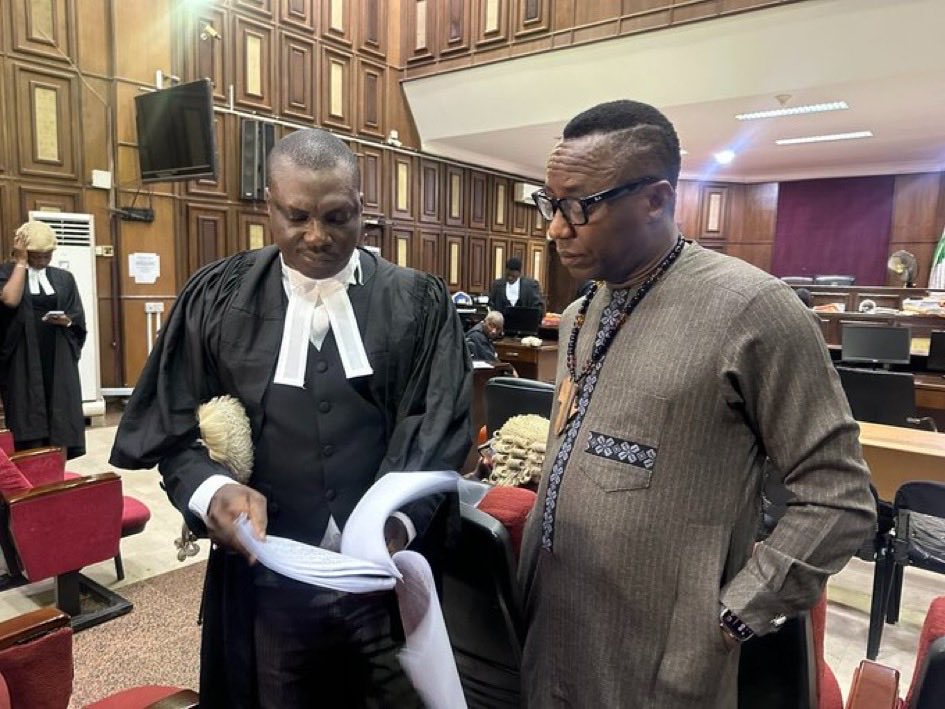

Tension erupted at the Kuje Magistrate Court in Abuja on Tuesday as security operatives re-arrested activist Omoyele Sowore moments after he and 12 others — including Nnamdi Kanu’s lawyer, Aloy Ejimakor — were granted bail over their involvement in the #FreeNnamdiKanuNow protest.
The magistrate had approved ₦500,000 bail each for the defendants, ordering their release pending further hearings on charges related to unlawful assembly and disturbance of public peace. However, chaos broke out immediately after the ruling when police officers, reportedly led by CSP Iliyasu Barau, stormed the court premises and seized Sowore again on what sources described as “fresh charges.”
Eyewitnesses described a violent confrontation between protesters, lawyers, and armed police officers. Sowore’s counsel was reportedly bloodied during the scuffle, while the activist was forcibly taken away to an undisclosed location, sparking outrage on social media and among civil rights groups.
This latest arrest adds to Sowore’s long-running history of confrontations with Nigerian authorities, dating back to his 2019 “RevolutionNow” protests under the Buhari administration, which saw him detained for several months by the Department of State Services (DSS). Since then, he has faced a pattern of cyclical arrests and court battles over his activism and outspoken criticism of government policies.
The protest that triggered the arrests took place outside Abuja’s Transcorp Hilton Hotel, where demonstrators had gathered to demand the release of IPOB leader Nnamdi Kanu, who has been in DSS custody since June 2021 despite multiple court rulings ordering his release.
Rights watchdog Amnesty International has repeatedly condemned such actions, warning that Nigeria’s government is “using security forces to silence dissent” and calling for the protection of peaceful protesters in accordance with the constitution.
As of Tuesday night, Sowore’s legal team said they had yet to confirm his exact whereabouts, fueling fears of another prolonged detention without transparency. Human rights organizations have vowed to petition the National Human Rights Commission (NHRC) and the United Nations Working Group on Arbitrary Detention for urgent intervention.
For many observers, the scenes at Kuje Court underscore a troubling reality: in Nigeria, the struggle for free speech and lawful protest remains a dangerous endeavor, even in the heart of the nation’s capital.
— Busterblog.com


